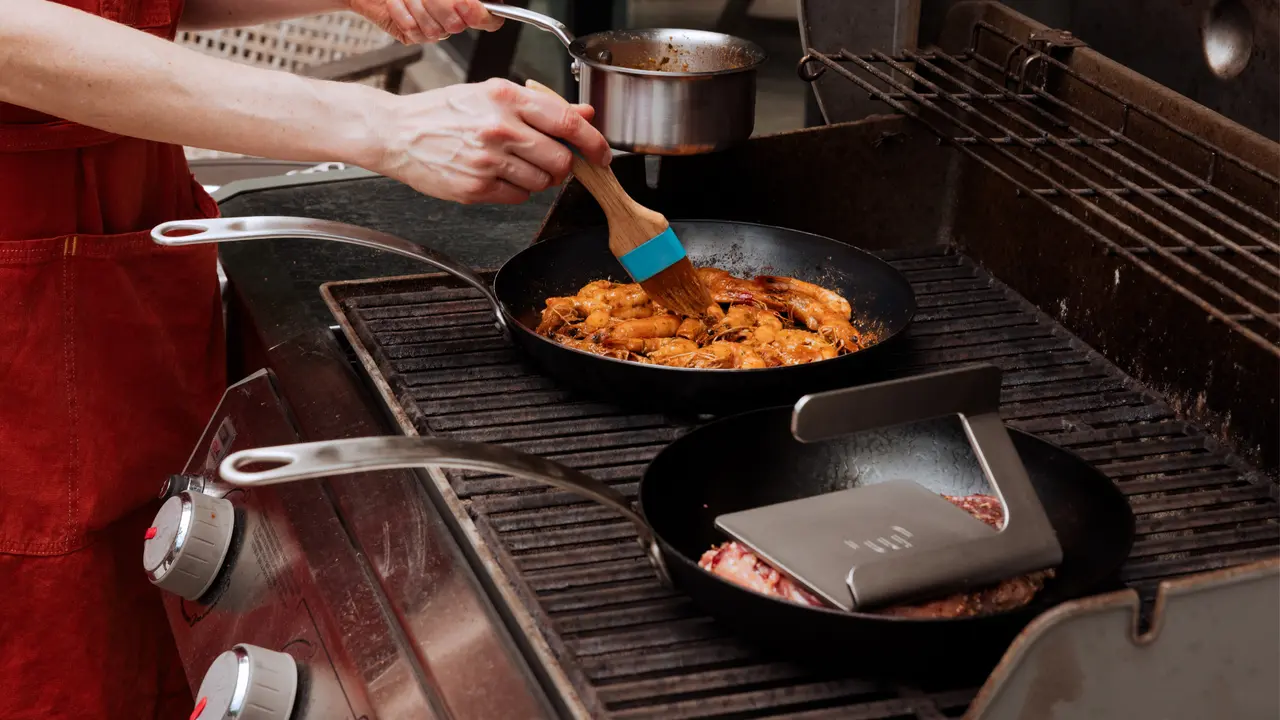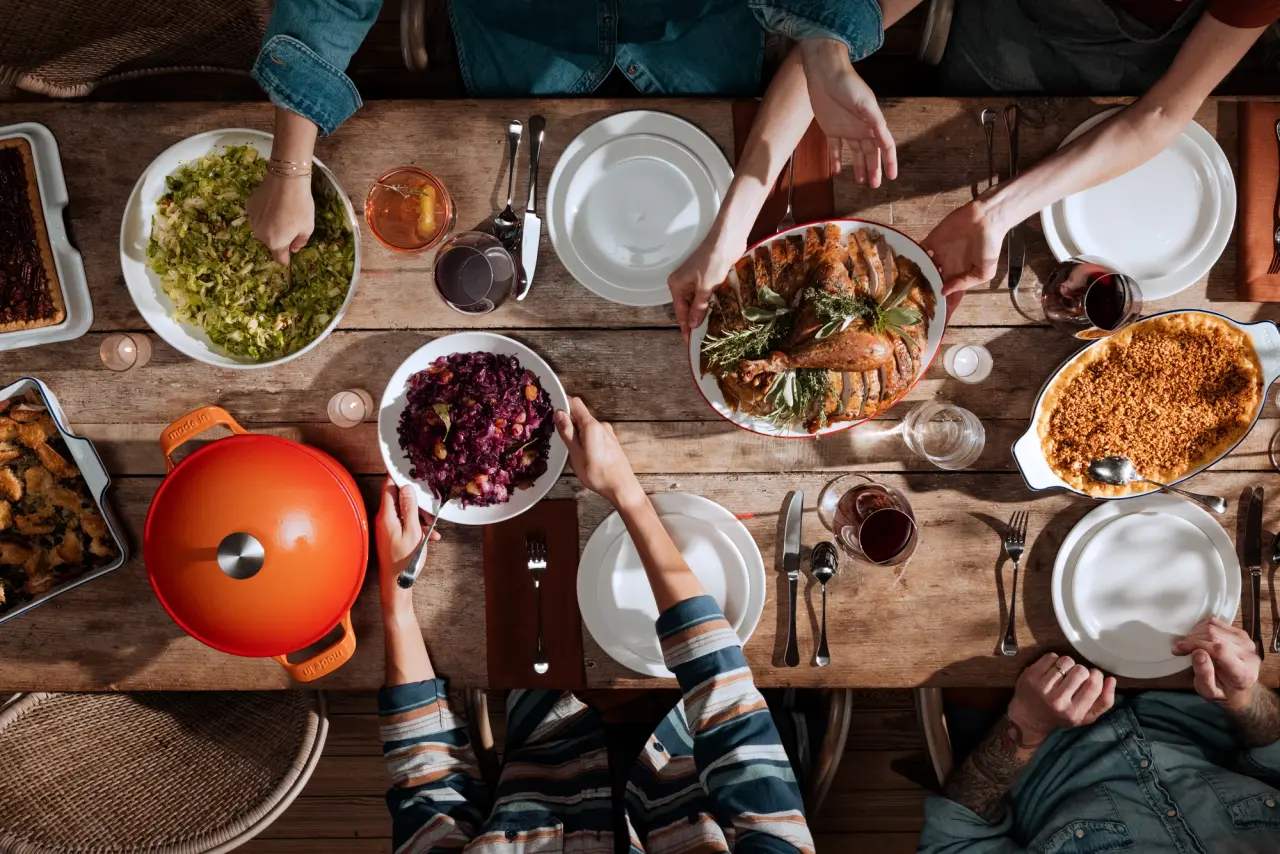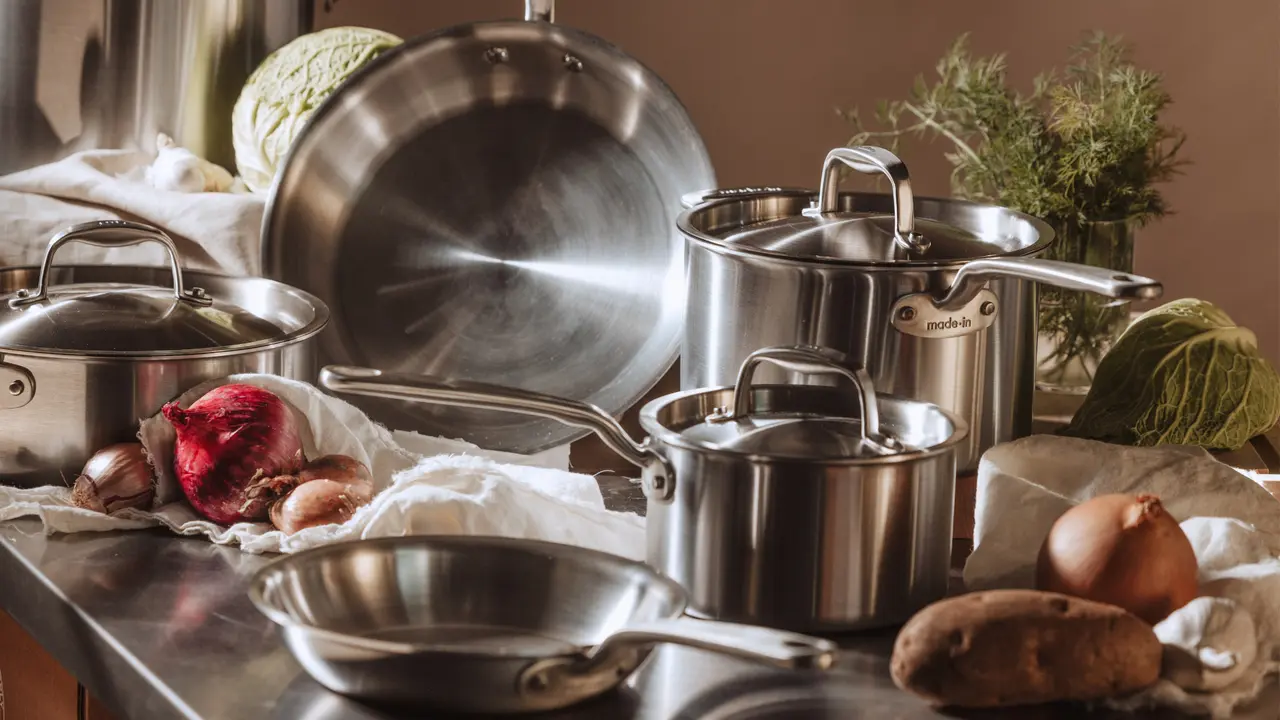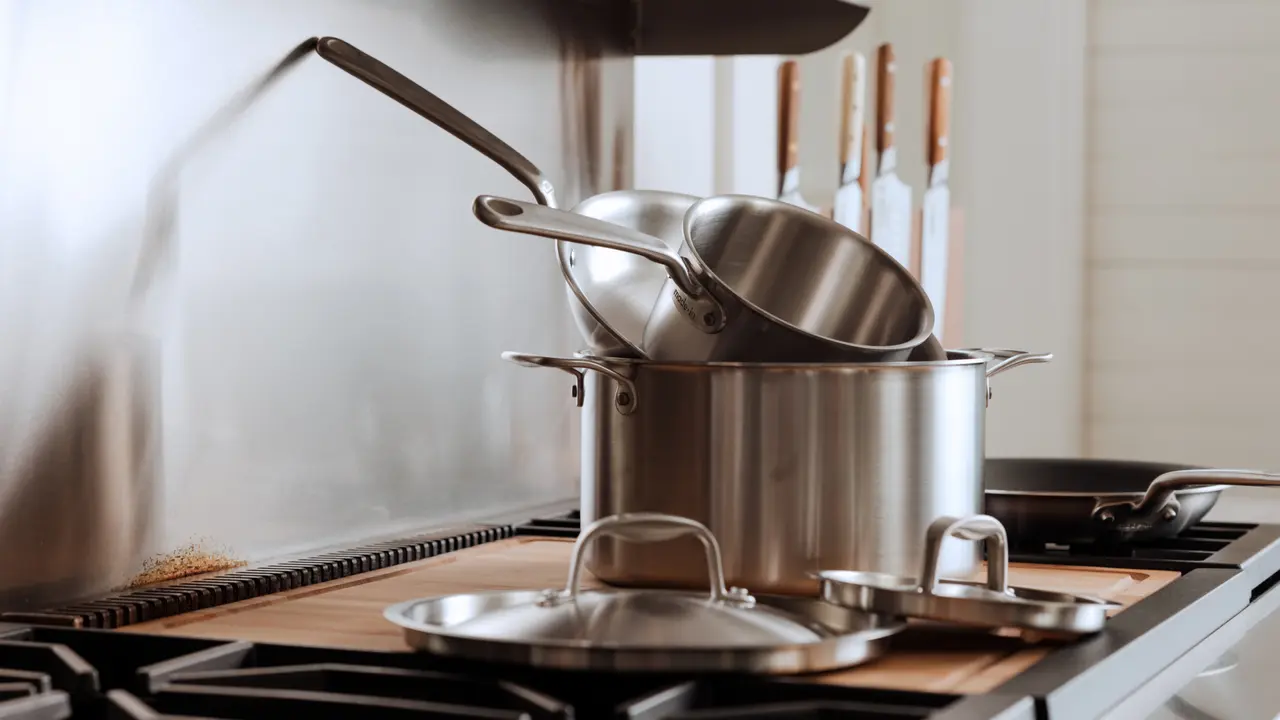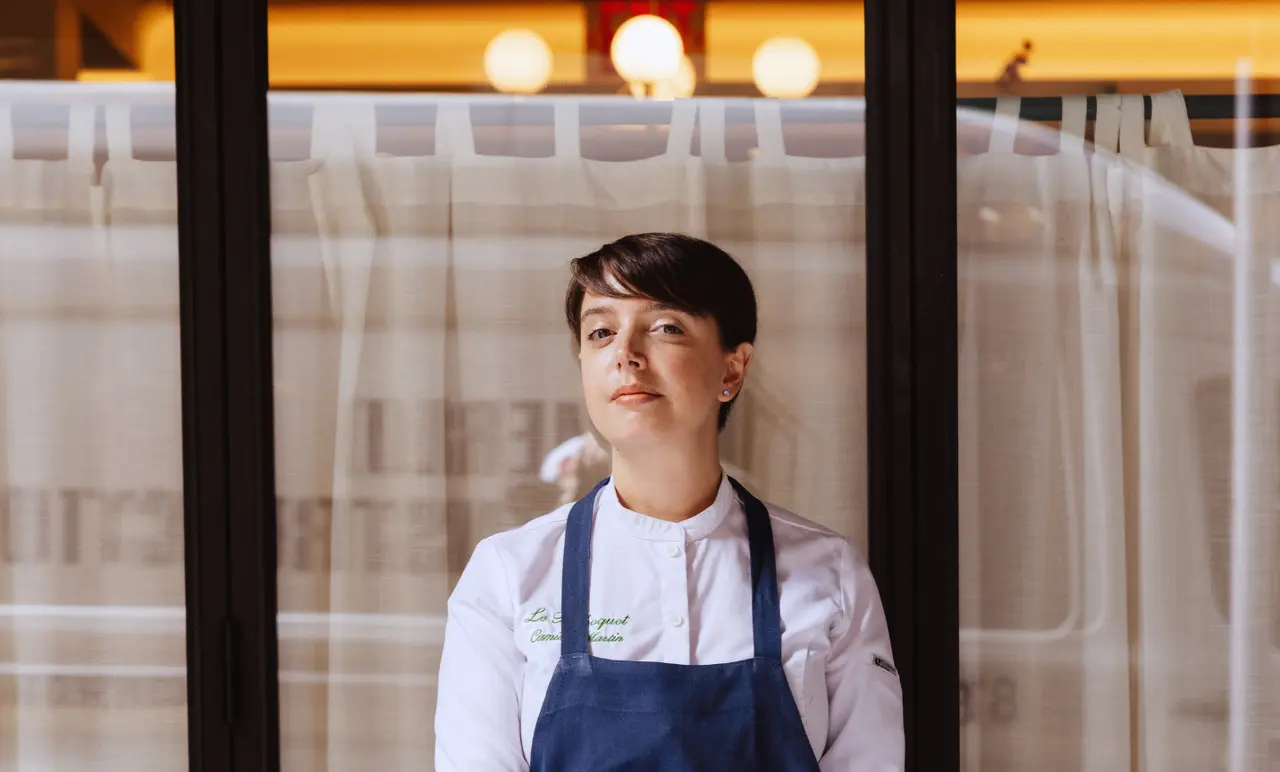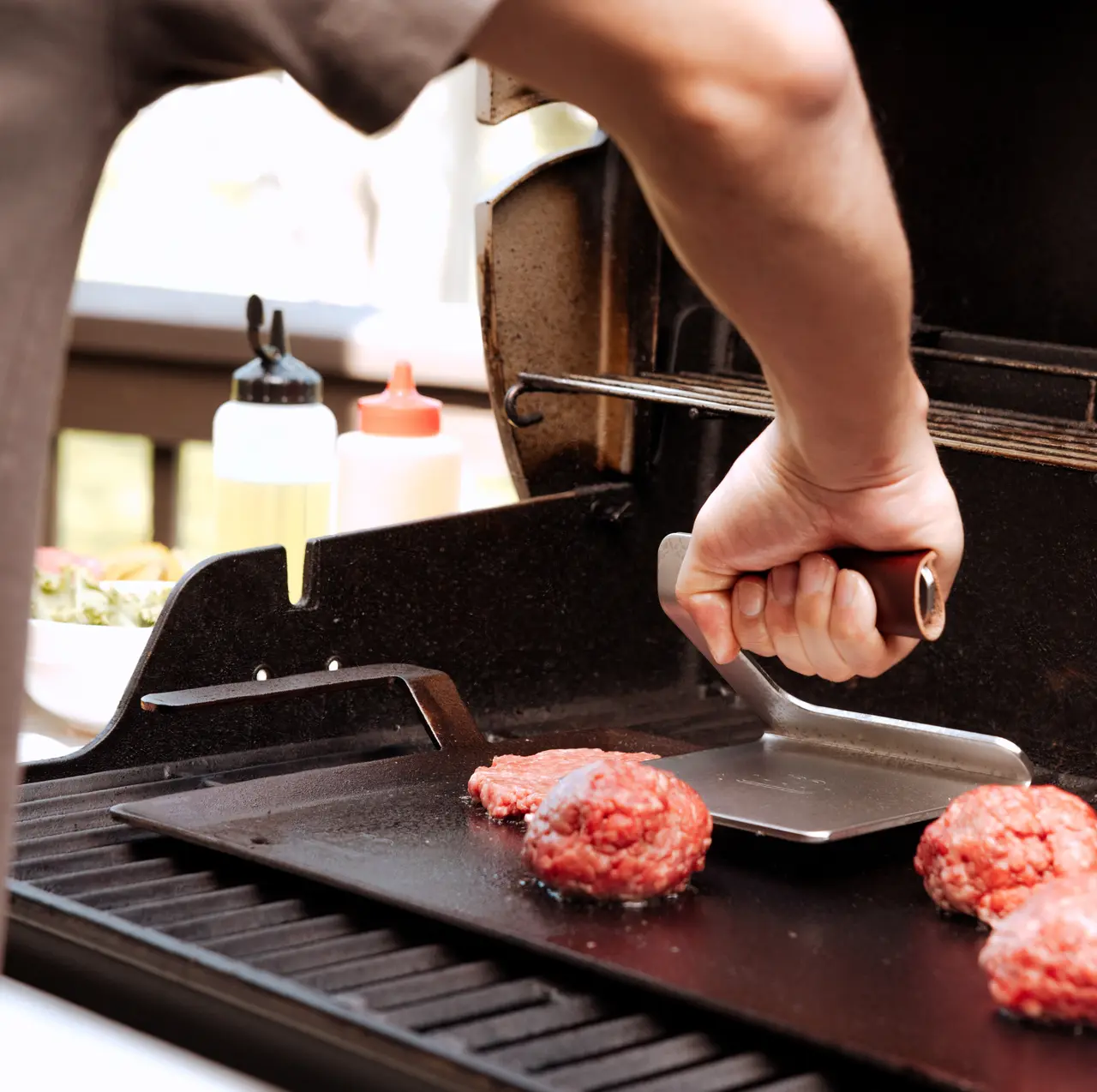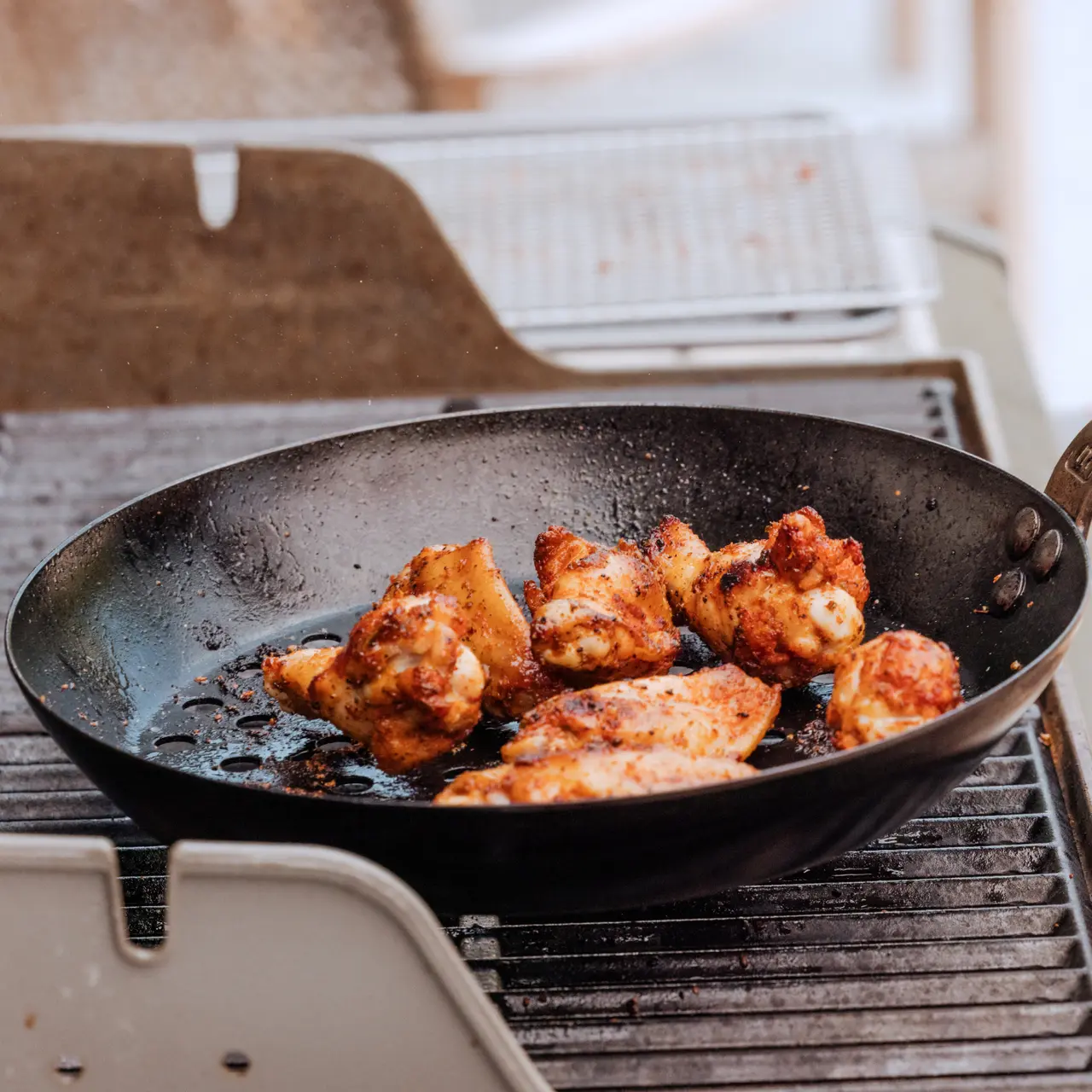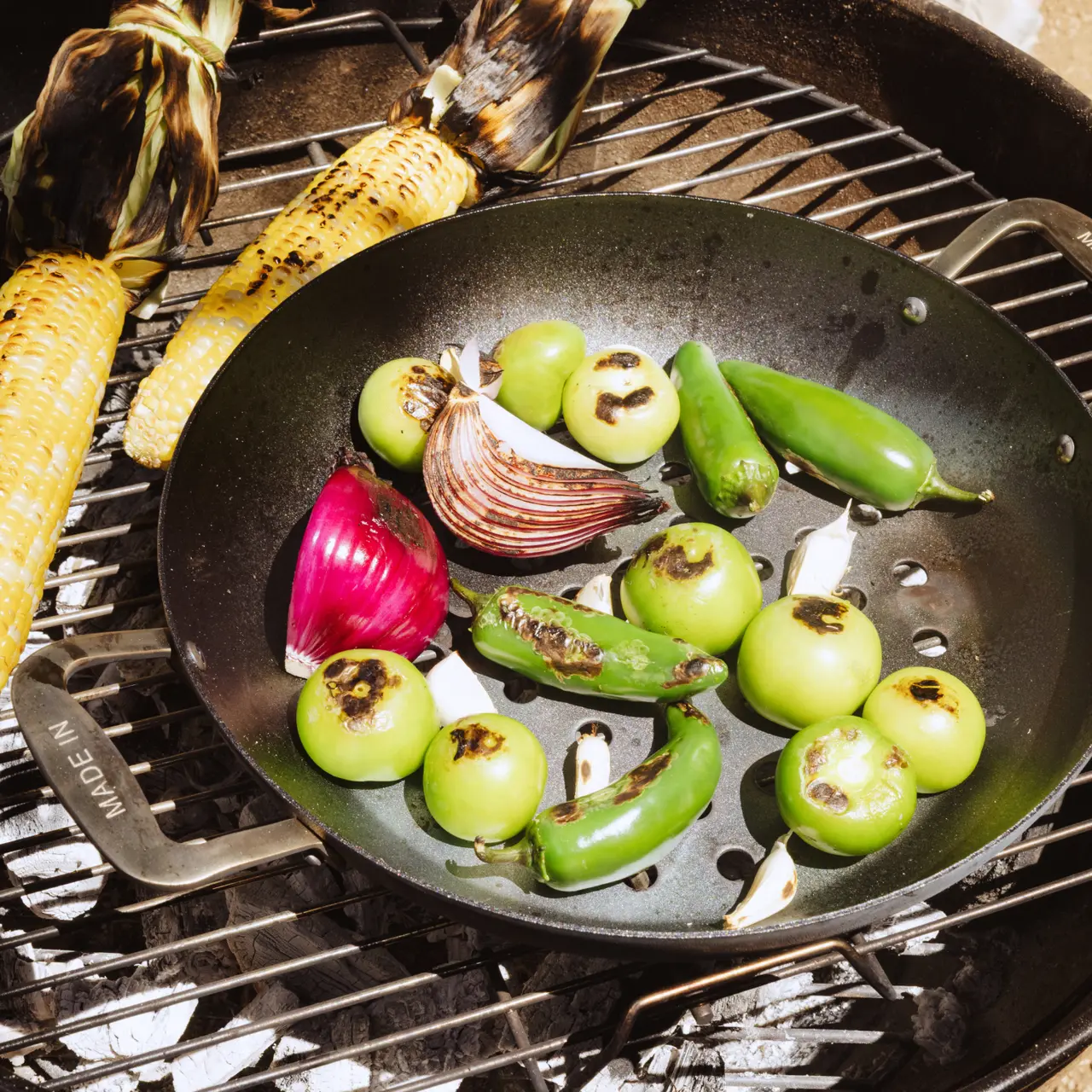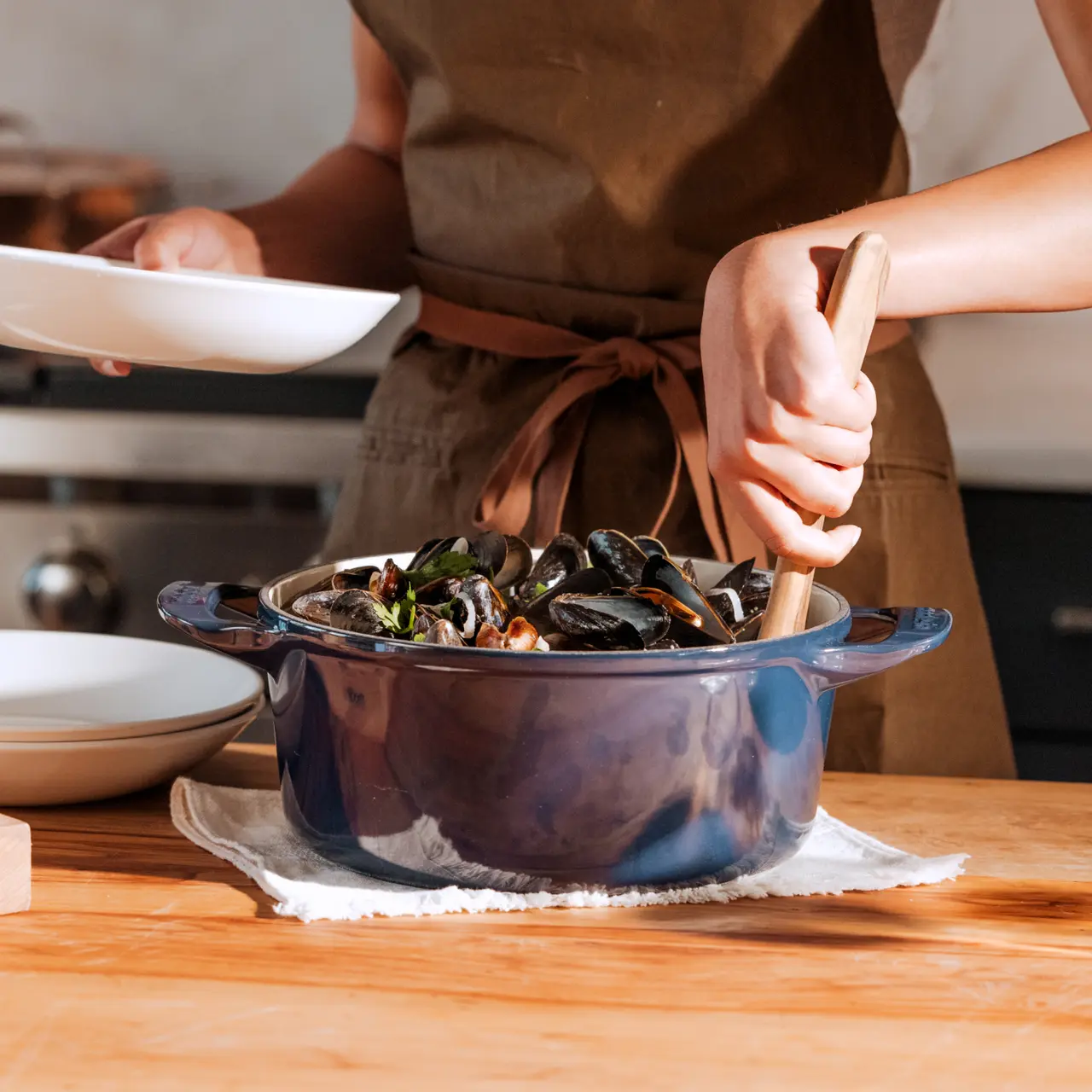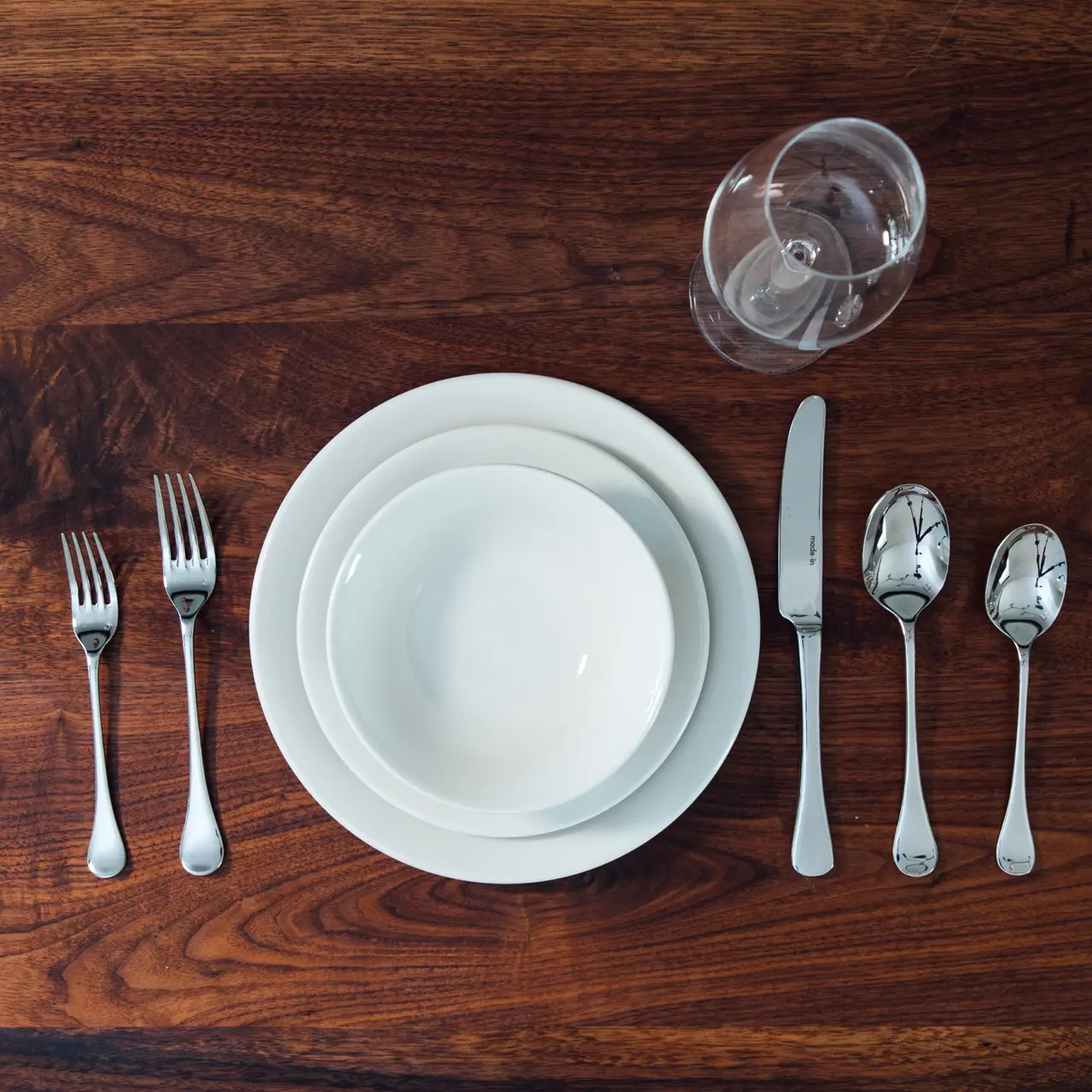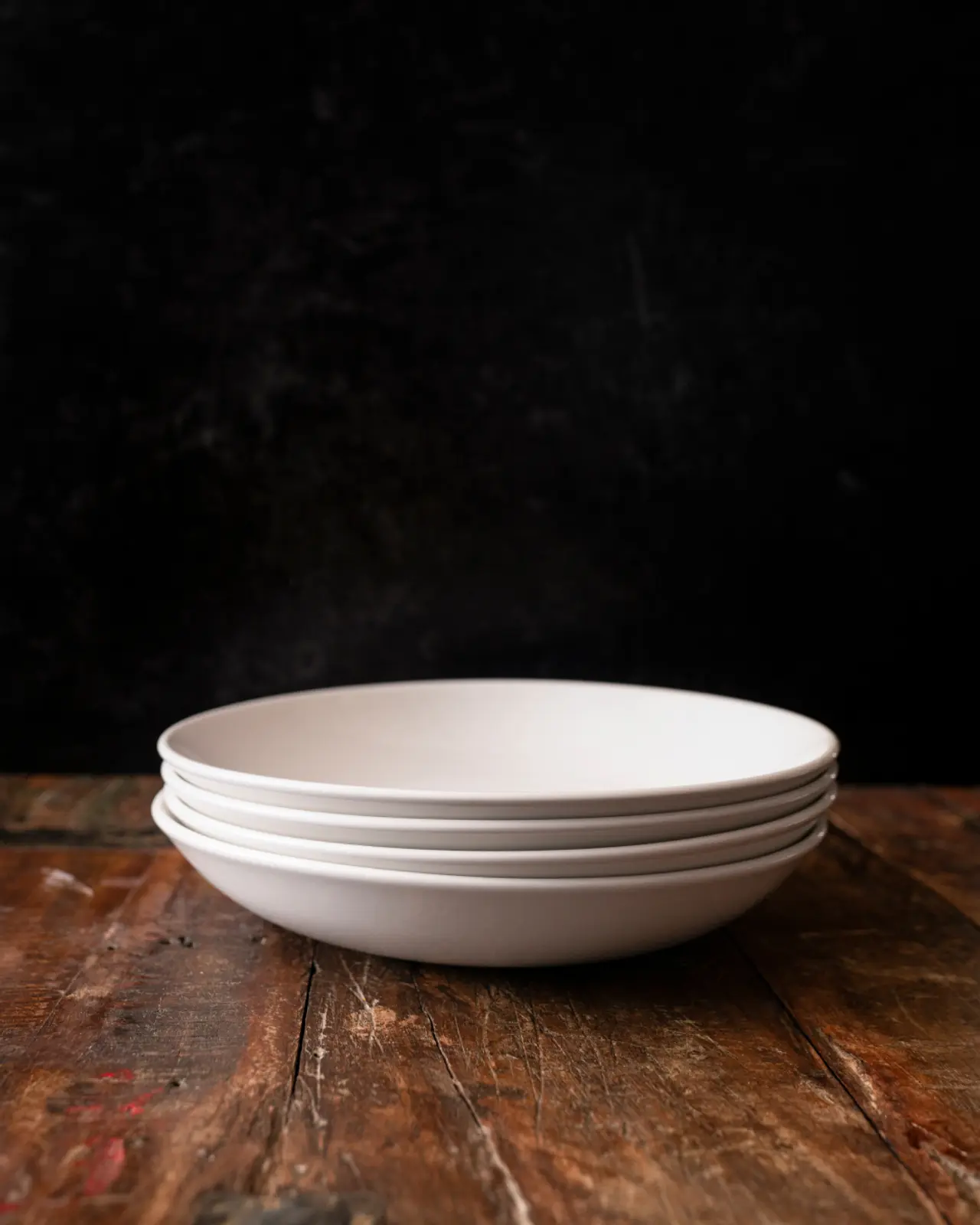“All of my food is a form of fusion,” says Chef Amanda Turner of Olamaie in Austin, TX. “Not in the ‘new American cuisine’ culturally borrowing sense, but in the sense that [my food] is inherently rooted in the idea of being ensconced in many cultures. That’s not only my ethnic make up, but the experience of living in a Southern city where there are so many different influences.”
Chef Turner grew up in Arlington, TX, an upbringing she describes as very typically American. “My mom did most of the weeknight cooking, with my dad picking up the occasional grilling or pork chop night,” she remembers. “We ate pizza, hard shell tacos, pasta, salad with ranch dressing, Rice-a-Roni, and Hamburger Helper.”
“Culturally, I’ve always felt between worlds,” says Chef Turner. “I never really felt like I fit in. I’m biracial—my mother is white and my father is Black—and despite growing up in a very racially diverse neighborhood, I was only occasionally exposed to Black culture.”
During holidays, Chef Turner would eat foods from her dad’s side of the family that were more “Creole inspired.” She remembers chitlins and seafood gumbo as standouts, along with the occasional fish fry. Chef Turner credits these food memories and her love of Chinese, Japanese, and Vietnamese cuisines, which she discovered during her teenage years, as formative to her culinary background.
It’s because of these influences that Chef Turner wants to take back the word “fusion.” After gaining popularity in the mid-aughts, the connotations of “fusion cuisine” are being reexamined by chefs across the country. It’s often a signifier of blending something “foreign” with something more “palatable” to suit American tastes.
When people think of the blending of cultures, the South may not be the first place that comes to mind, and Chef Turner thinks that needs to change.
“For too long, the story of the South in particular has been seen through the lens of how enslaved people—and the people that enslaved them—paved the road for this cuisine,” she says. “That’s only part of the story. It can’t be understated the impact of many Latinx immigrants to the South, particularly of Mexico if we’re talking about Texas, a place that was literally Mexico at one point.”
Chef Turner’s entire culinary career has taken place in Texas, Austin specifically, and she has watched it evolve over the years. While she has loved seeing the city expand and the food scene grow, it also lays bare the effects of gentrification, which has priced some smaller, more culturally diverse businesses out.
“We’re fortunate however to really have a lot of people in the culinary community working together to help make our city excel,” she says. “I want to help grow the community of younger culinarians here in Austin. I feel like it is my duty in some ways to guide these younger cooks and help them navigate through the culinary landscape—hopefully to success.”
After working a variety of jobs throughout the restaurant industry, from prep cook to pastry chef, Michael Fojtasek approached Chef Turner to be his Chef de Cuisine at Olamaie. He had long wanted to explore the nuances of Southern cuisine, but wanted to make sure it was in the right hands. Chef Turner, on the other hand, was hesitant to cook Southern food.
“There have been a lot of instances where I was paraded around as a symbol of diversity,” she explains. “I have to be very cautious of what I sign up to do and to represent because people are very willing to exploit my story for their own sense of ‘diversity’ and gain.
At Olamaie however, Chef Turner began to approach Southern food through her own nostalgic lens, remembering the foods of her childhood and blending them with techniques she’s learned throughout her decade plus of experience in the restaurant industry.
“It’s been really great collaborating with Chef Fojastek as he’s a studied Southern Cuisine historian of sorts,” she says. “My concepts are mostly grounded in flavors and techniques that feel personal to me, and then I try to tie the lines of cultures together to make something unique with a ‘Southern twist.’”
Chef Turner draws upon her background in Japanese cuisine, in part from her time at Uchiko, as a way to inform how she approaches Southern food. “I use the Japanese ideals of simplicity, and seasonality. We also cross-utilize some techniques such as using a konro yak grill with binchotan charcoal, that’s typically used for yakitori, to create a unique experience,” she says.
In her “spare” time, Chef Turner has been working on a D&D themed fried chicken pop-up, called the Fiery Talon.
“This is going to sound super cliche, but I love fried chicken,” Chef Turner laughs. “My best friend Daniel Ohly and I thought it would be fun to toe the line between reality and fantasy, while making a very Amanda-style sandwich that’s somewhere between Nashville hot chicken, tori katsu, and sichuan cuisine. It’s really been a blast and we’ll have a few limited runs over the summer!”
Whether she’s developing new dishes at Olamaie, or working on projects with friends, Chef Turner stays curious and passionate about her craft.
“The Austin culinary community is one of the best scenes I know and I think there’s just so much opportunity to share and create together,” she says. “There’s a lot to explore if you’re open to understanding the truth behind what it means to have people of many cultures existing in the same place at any given time. That to me is true ‘Americana.’”

